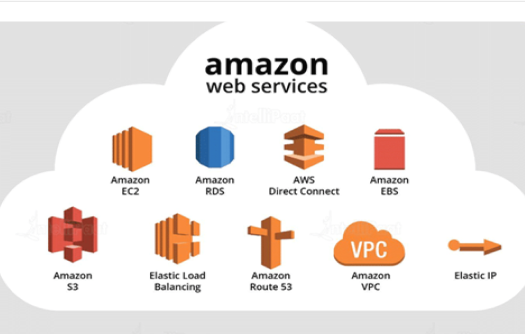How will Startups shape up India ?
Start-ups are newly established businesses, usually in the early stages of development, with a unique product, service, or business model that has the potential to disrupt traditional industries or create new markets. They are typically characterized by a high degree of innovation, risk, and uncertainty.
“Don’t worry about failure; you only have to be right once.”
Unlike established businesses, start-ups often have limited resources and face significant challenges in securing funding, building a customer base, and establishing themselves in the market. However, start-ups also have the advantage of being able to move quickly, adapt to changing circumstances, and pursue new opportunities that may not be available to larger, more established companies.
Start-ups can be found in a wide range of industries, including technology, healthcare, finance, and consumer goods. They can be founded by individuals, groups of entrepreneurs, or even as spin-offs from existing companies.
Overall, start-ups are an essential part of the economy, driving innovation, creating jobs, and contributing to economic growth. While the success rate of startups can be low, the potential for impact and growth is significant, making them an exciting and attractive option for entrepreneurs and investors alike.
According to a report by Start-up Genome, the global start up economy was valued at $3.8 trillion in 2020 and is expected to grow to $8.8 trillion by 2025. The report also identified several trends that are likely to shape the future of the start-up industry, including the rise of remote work, the importance of digital transformation, and the increasing focus on sustainability and social impact.

Why Start-Ups fail?
If Plan A doesn’t work, the alphabet has 25 more letters.”
There are many reasons why start-ups fail, but some of the most common ones are
- Lack of market need: One of the most significant reasons start-ups fail is because there is no market need for their product or service. Entrepreneurs may have a great idea, but if there isn’t a demand for it, the startup is unlikely to succeed.
- Insufficient funding: Startups often require a significant amount of capital to get off the ground and sustain operations until they become profitable. If a startup doesn’t have enough funding, it may not be able to invest in marketing, research and development, or other critical areas, leading to its failure.
- Poor management and leadership: A lack of experience, poor decision-making, or ineffective leadership can all contribute to a startup’s failure. Founders need to have strong management skills, a clear vision, and the ability to adapt to changing circumstances to succeed.
- Competition: The market can be crowded, and startups may find themselves competing against established companies with more resources, brand recognition, and customer loyalty.
- Legal and regulatory issues: Startups may face legal and regulatory challenges, such as intellectual property disputes, non-compliance with regulations, or unexpected changes in laws that impact their business.
- Inability to scale: A startup may have a great product or service, but if it can’t scale operations efficiently or adapt to growth, it may struggle to keep up with demand.
Why the buzz about Start– Ups?
Start-ups are a hot topic right now for several reasons. Here are some of the key reasons why startups are generating a lot of buzz:
- Innovation: Startups are often founded on new and innovative ideas that can disrupt industries and create new markets. This is particularly exciting for investors and consumers alike, as they seek out the next big thing.
- Job creation: Startups have the potential to create new jobs and drive economic growth, particularly in sectors such as technology, healthcare, and renewable energy.
- Entrepreneurship: Startups represent the spirit of entrepreneurship, which is seen as a key driver of economic growth and innovation. They offer opportunities for individuals to pursue their passions, build their own businesses, and make a positive impact on society.
- Venture capital: The rise of venture capital firms and angel investors has made it easier for startups to secure funding, giving them the resources they need to grow and succeed.
- Digital transformation: The increasing digitization of our world has created opportunities for startups to disrupt traditional industries and create new markets in areas such as e-commerce, fintech, and online education.
Why line of business in start-up have boomed recently?
There are several reasons why certain industries have seen a surge in startup activity in recent years.
- Technological advancements: The rapid development of new technologies has created new opportunities for startups to disrupt traditional industries and create new markets. For example, the rise of artificial intelligence, blockchain, and the Internet of Things (IoT) has led to the emergence of new startups in fields such as fintech, healthcare, and transportation.
- Changing consumer behavior: As consumer behaviour has shifted towards online shopping and digital services, startups have been quick to capitalize on these trends. E-commerce, online food delivery, and ride-sharing services are just a few examples of industries that have seen significant startup activity in recent years.
- Access to funding: The rise of venture capital firms and angel investors has made it easier for startups to secure funding, giving them the resources they need to grow and succeed. Additionally, crowdfunding platforms have also enabled startups to raise capital from a wider pool of investors.
- Entrepreneurship culture: The growth of startup ecosystems, such as Silicon Valley in the US and Bangalore in India, has created a culture of entrepreneurship that encourages individuals to start their own businesses. This culture is driven by a combination of factors, including access to mentorship, networking opportunities, and a supportive startup community

Synopsis
One of the defining characteristics of startups is their focus on growth and scalability. Unlike small businesses, startups are not content with staying small and generating modest profits; instead, they aim to achieve exponential growth by scaling their products or services to a wider audience. To do this, startups typically rely on venture capital or angel investors, who provide them with the funding needed to develop their ideas, create prototypes, and scale their operations.
Startups are also known for their agility and flexibility. Because they are new and have not yet established entrenched processes or ways of doing things, startups are able to pivot quickly in response to changing market conditions or customer needs. This adaptability allows start-ups to stay ahead of the competition and remain relevant in rapidly evolving industries.
However, startups also face significant challenges, including high failure rates, intense competition, and the need to constantly innovate and differentiate themselves from their competitors. As a result, startups require a high level of commitment, resilience, and creativity from their founders and team members.
Overall, start-ups play an important role in driving innovation and economic growth, and they are a critical component of the entrepreneurial ecosystem. While many start-ups will fail, those that succeed have the potential to change entire industries and create new opportunities for growth and prosperity.















































